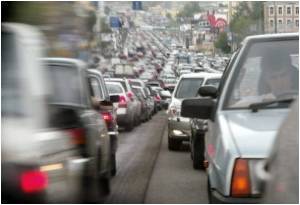
To understand the effects of a wider spectrum of psychotropic drugs on driving accidents, the authors compared drug use in two groups of people identified using medical records from the Taiwanese national health insurance programme. The first group included 5,183 people involved in motor vehicle accidents. The second group included 31,093 people, matched for age, gender and the year of vehicle accidents, who had no record of being involved in motor vehicle accidents. In general, those involved in accidents were more likely to have been taking psychotropic drugs, whether they had been taking them for one month, one week or one day.
The results suggest that the increased risk associated with benzodiazepines is mirrored in both Z-drugs and antidepressants. However, antipsychotics were not associated with an increased risk of motor vehicle accidents, even among those taking higher doses.
"Our findings underscore that people taking these psychotropic drugs should pay increased attention to their driving performance in order to prevent motor vehicle accidents," said lead researcher, Hui-Ju Tsai, who is based at the National Health Research Institutes in Zhunan, Taiwan. "Doctors and pharmacists should choose safer treatments, provide their patients with accurate information and consider advising them not to drive while taking certain psychotropic medications."
The research strengthens the findings of previous reports that have assessed the risk associated with individual psychotropic drugs. It also provides more evidence on the link between dose and driving performance, showing that higher doses are associated with a higher risk of an accident. "Our data demonstrated significant dose effects for antidepressants, benzodiazepine and Z-drugs," said Tsai. "This suggests that taking a higher dosage poses a greater danger to those intending to drive."
The authors recommend that patients do not stop taking their medication, but if concerned should consult their doctor.
Advertisement















